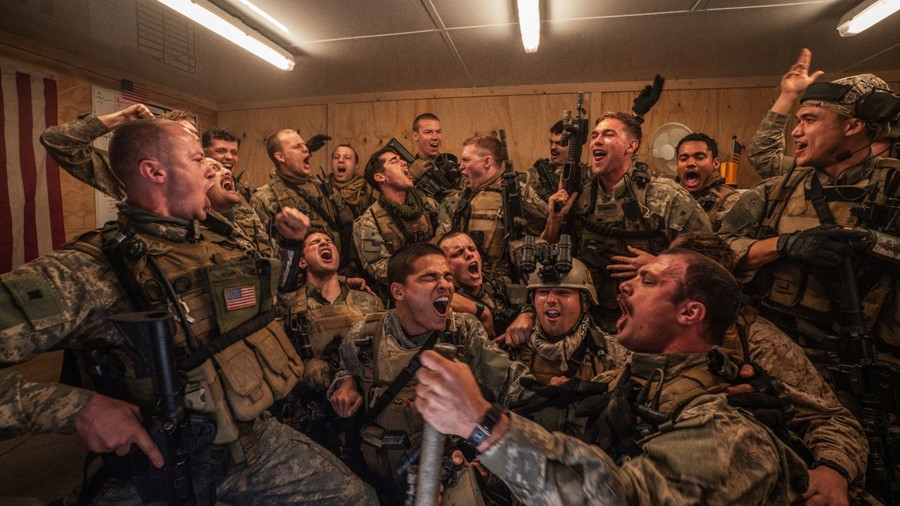The pick of this month’s cinematic crop includes Alex Garland’s first film as co-director, and an enigmatic new tale from Georgian visionary Dea Kulumbegashvili
Warfare
From April 18
In conversation with AnOther for Civil War, his surprisingly straight-laced sci-fi action flick of last year, Alex Garland spoke of his admiration for the old-school, “just the facts” mode of news reporting. His new film takes the approach and runs with it: it’s a real-time restaging of an Iraq military op gone disastrously awry, drawn from the testimony of soldiers including Ray Mendoza, his co-writer and director on the project.
Mendoza, a former Navy Seal turned Hollywood stunt coordinator, helped choreograph the assault on the Capitol that provided Civil War with its thundering, heavy-metal climax. The pair hit it off during the shoot, and Mendoza told Garland of his traumatic experiences in the city of Ramadi, where his team was ambushed by a group of al-Qaida insurgents in 2006. They worked up a script together and Warfare is the result, with Garland, by his own admission, taking on more of an advisory role to Mendoza on set.
That’s no mean feat: at a ferociously tense 94 minutes, this might be the tightest film of Garland’s career. Opening on a moment of team bonding set to Eric Prydz’s famously sleazy Call on Me music video, the bulk of the action takes place inside an Iraqi family’s home which the team stake out as a surveillance post, unaware they’ve set up shop next to an insurgent house. Sustaining heavy casualties in the ensuing standoff, the group struggle to keep their wits about them as an evacuation attempt is launched.
Deftly performed with a minimum of dialogue by a talented cast including Joseph Quinn, Will Poulter and Charles Melton, it’s a full-tilt immersion into the sensory derangement of war, stripped of the politics and platitudes that mark so many other movies of its kind. This reveals itself as both strength and weakness, Garland and Mendoza’s stated aim not to ‘editorialise’ the action narrowing our focus to the next moment, and the next, as the company comes under fire and shellshock kicks in.
But the approach does have its limits. We can, perhaps, recognise the professionalism of this band of characters without approving of their reasons for being there. But the question of why we’re seeing a film about a hated war now nearly 15 years’ distant does inevitably arise, and I’m not sure what the answer is beyond a basic desire to honour a personal story. Is that enough? Perhaps the closest Garland and Mendoza come to breaking their own ‘no editorialising’ rule is the haunting last shot, where the Iraqi fighters come out of hiding after the tanks have rolled out. Briefly, we see one high-five the other in a gesture of camaraderie that echoes the American troops’ own high spirits from before the mission. It’s a rare searching moment in a film that prizes pure sensation above all else.
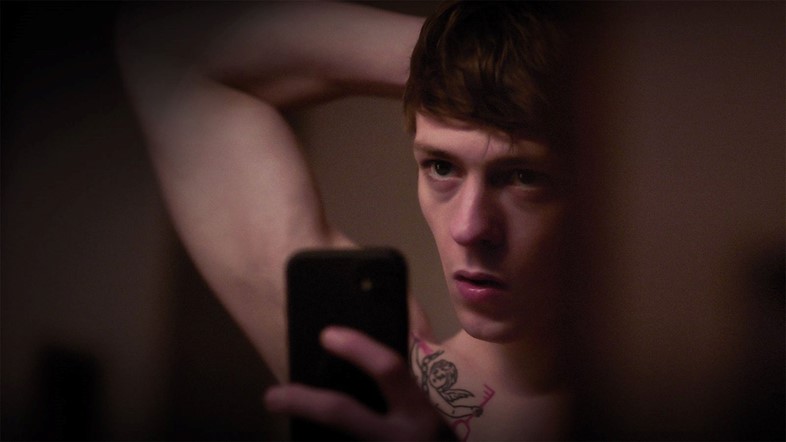
Sebastian
From April 4
Max (Ruaridh Mollica) is an aspiring author who takes up sex work under a pseudonym, Sebastian, to research a story he is writing. Securing interest from a publisher, he takes on increasingly risky jobs in a quest for authenticity that raises some awkward questions, not all of them grasped by our self-absorbed protagonist: can he, a tourist in this line of work, lay authentic claim to real sex workers’ feelings about their profession? And why does he keep gravitating towards older men? Mikko Mäkelä’s film does a skilful job navigating thorny ethical dilemmas of our age in this engaging feature debut, with a spiky turn from Mollica and fine support from Jonathan Hyde as a lonely English professor who finds a deeper connection with Max.
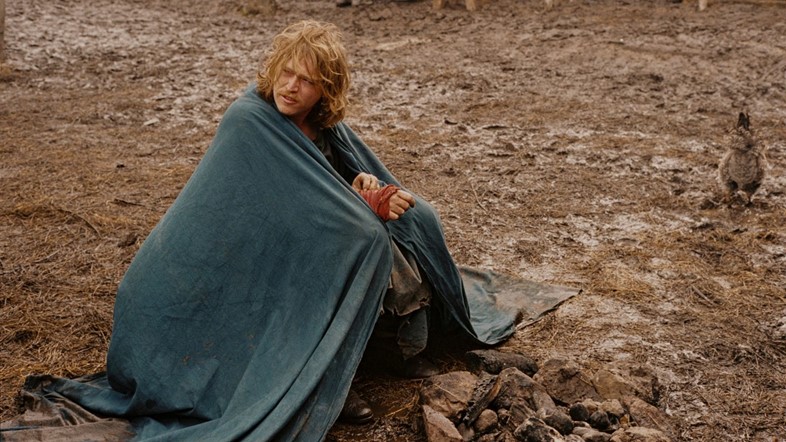
Harvest
From April 14
Beautifully lensed but dramatically woolly, Athina Rachel Tsangari’s Harvest is the story of a medieval Scottish farming community menaced by the arrival of a callous new landlord, Edmund (Frank Dillane). Among but not quite of the locals is free spirit Walter (Caleb Landry Jones), a widower and lifelong friend of the old landlord (Harry Melling) pressed into service against his will by the dastardly Edmund. Conjuring a mood that is lyrical and gently trippy before trampling it into the mud, Tsangari’s film is a fever-dream of humanity’s communitarian past in vague period clothing, and an end-times lament for the ruinous effects of capitalism that perhaps feels too thinly sketched to stick.
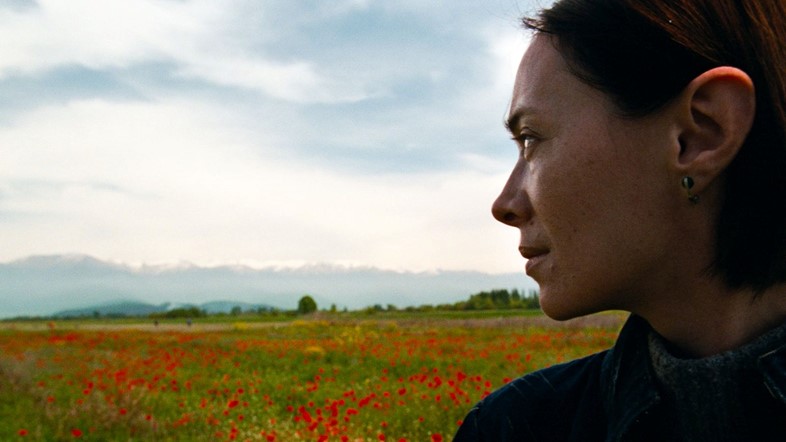
April
From April 25
Fans of intimidatingly bleak slow cinema – Yes! We know you’re out there – have a feast on their hands with April, the second feature from Georgian feelbad visionary Dea Kulumbegashvili. A prize-winner at Venice, this strikingly conceived film concerns obstetrician Nina (Ia Sukhitashvili), whose illegal sideline in providing abortions for the rural poor puts her career in jeopardy. To complicate matters, there’s a dark subplot that sees her cruising the country roads at night in search of anonymous sex – and a heavy-breathing, faceless monster that stalks the film at random intervals. What does it all mean? Er, we’ll get back to you on that, but there’s enough beauty in this mystery to make it a must-see, despite some knuckle-whiteningly intense scenes of a medical nature.
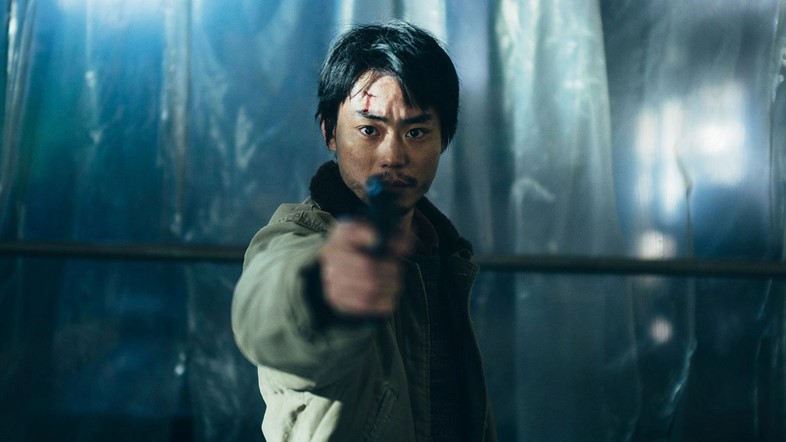
Cloud
From April 25
J-horror veteran Kiyoshi Kurosawa is one of the great genre filmmakers of the last 30 years, an absolute master of his craft whose turn-of-the-millennium run served up haunting existential classics like Cure and Pulse. Cloud, we’re sorry to report, rarely approaches those peaks but possesses a scrappy charm of its own, an eccentric thriller about an internet scammer (Masaki Suda) whose attempts to live off-grid are threatened when his victims band together against him. The film lacks the incisive social commentary of his best work and is fundamentally a bit loopy, but Kurosawa throws a superbly staged shootout into the mix and ends on a sinister note with a pleasing whiff of the supernatural about it.
